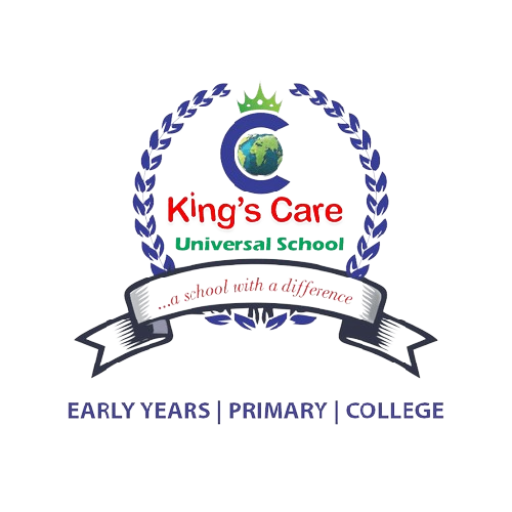Table of Contents
Schools in Abuja: Nigeria’s Power Supply Challenges—Frequent Outages, Voltage Fluctuations, and Inconsistent Access to Electricity Affecting Education, Highlighting the Need for Stable Power in Schools to Support Learning, Technology, and Operational Efficiency.
King’s Care Universal School, located in Lugbe, Abuja, serves as a compelling case study in addressing the challenges posed by inconsistent power supply. By implementing innovative solutions and strategies, the school has managed to create a conducive learning environment despite the prevailing power issues in Nigeria. This study will explore how private schools like King’s Care Universal School can tackle the persistent power supply problems, offering valuable lessons for others facing similar circumstances.
In Schools in Abuja Understanding the Impact of Inconsistent Power Supply on Schools in Abuja and Nigeria
Schools in Abuja: Understanding the Impact of Inconsistent Power Supply
Inconsistent power supply is a major issue that has profound implications for the learning environment in Nigerian schools, especially in schools in Abuja. Frequent power outages and voltage fluctuations create constant interruptions in classrooms, hindering the smooth flow of lessons and causing frustration among both teachers and students. These disruptions often lead to valuable instructional time being lost, which, in turn, negatively impacts student engagement and academic performance in schools in Abuja. The inability to maintain a steady power supply also limits the ability of educators in schools to utilize modern teaching aids—such as projectors, computers, and interactive whiteboards—that are crucial for creating an engaging and dynamic classroom experience.
The challenges posed by unreliable power extend well beyond the classroom in schools in Abuja. They also significantly affect the administrative operations within schools, which depend on electricity for vital tasks like managing student records, communicating with parents and staff, and processing financial transactions. Without a stable power supply, these essential operations in schools are delayed or even compromised, leading to inefficiencies, increased workloads for school staff, and a reduction in overall institutional effectiveness. Moreover, administrative duties become more difficult in schools in Abuja, as manual systems are often used to compensate for the lack of reliable technology, increasing the chances of errors and mismanagement.
Another critical aspect affected by inconsistent power supply is the integration of technology into education in schools in Abuja. In today’s increasingly digital world, equipping students with the necessary technological skills is paramount for their future success. However, without stable electricity, schools in Abuja are unable to effectively implement or maintain digital resources such as e-learning platforms, online learning tools, and educational software that are essential for preparing students for a rapidly evolving digital landscape. This lack of access to modern technology further limits the learning opportunities for students, reducing their ability to interact with digital content, collaborate online, and develop the skills required for future careers.
The long-term consequences of inconsistent power supply are wide-ranging. They impact not only the immediate learning experience but also the operational efficiency and growth of educational institutions in Abuja. If these issues are not addressed, they will continue to hinder the development of an effective, forward-thinking education system that can meet the needs of Nigeria’s growing student population. As such, ensuring a stable and reliable power supply in schools in Abuja is critical to providing students with the tools, resources, and environment they need to succeed in the modern world. Addressing these challenges should be a top priority for both the government and educational institutions to help build a more sustainable, productive, and equitable educational system in Abuja. Visit our tech partner for more insights TECHWAVE DIGITAL SERVICE
Learn more about Nigeria’s power supply challenges and the educational sector here.
Schools in Abuja: Strategies Employed by King’s Care Universal School
A. Investment in Alternative Energy Sources
King’s Care Universal School has made significant investments in alternative energy sources to combat the challenges posed by inconsistent power supply in schools in Abuja. One of the primary strategies has been the installation of solar panels, which harness the sun’s power to generate electricity. This renewable energy solution provides a reliable source of power for the school, reducing dependence on the national grid and mitigating the impact of power outages in schools in Abuja.
In addition to solar panels, the school has also integrated backup generators to ensure that operations can continue smoothly during extended periods without electricity. This dual approach allows King’s Care Universal School to maintain a consistent power supply, ensuring that both classrooms and administrative offices remain functional and conducive to learning in schools in Abuja.
The benefits of investing in renewable energy extend beyond immediate power needs. By utilizing solar energy, the school reduces its operational costs in the long run and promotes environmental sustainability. Solar power significantly decreases the school’s carbon footprint, contributing to a more sustainable future. Furthermore, this commitment to renewable energy serves as a valuable teaching tool in schools, allowing students to learn about the importance of sustainable practices and the role of technology in addressing environmental challenges.
To read more about the importance of renewable energy in education, check out this external resource on sustainable school energy solutions.
Through these strategic investments, King’s Care Universal School exemplifies how private institutions in Abuja can effectively tackle power supply issues while fostering a culture of sustainability and innovation. Visit King’s Care Universal School to learn more about their innovative approach.
B. Infrastructure Enhancements
To further mitigate the impact of inconsistent power supply, King’s Care Universal School has prioritized significant upgrades to its electrical systems. By enhancing the infrastructure, the school ensures that its facilities can handle power fluctuations more effectively. This includes installing surge protectors and stabilizers that safeguard sensitive equipment from damage caused by sudden voltage spikes or drops. Such upgrades help maintain a consistent and safe electrical environment, which is essential for both teaching and administrative functions.
Additionally, the school has created a robust backup system that integrates seamlessly with its primary power sources. This includes a well-maintained generator system that can be activated swiftly during outages, ensuring minimal disruption to daily operations. By having a reliable backup in place, King’s Care Universal School can maintain essential services and continue providing quality education even in the face of power challenges.
C. Partnership with Energy Providers
King’s Care Universal School recognizes the importance of collaboration in addressing power supply issues. The school has established partnerships with local energy companies to secure a more reliable electricity supply. These collaborations allow the school to access priority services and support during outages, ensuring that it remains operational even when challenges arise.
Moreover, King’s Care Universal School actively engages in advocacy for improved power infrastructure in the surrounding community. By participating in local discussions and initiatives focused on energy reform, the school helps raise awareness about the critical need for reliable power supply. This advocacy not only benefits the school but also supports broader efforts to enhance energy access for all residents in the area.
Through strategic infrastructure enhancements and partnerships with energy providers, King’s Care Universal School demonstrates a proactive approach to overcoming the challenges of inconsistent power supply. These efforts not only improve the school’s operational resilience but also contribute to the overall development of the local community.
Community Engagement and Education
Recognizing that solutions to power supply challenges extend beyond the school itself, King’s Care Universal School actively involves parents and the local community in discussions about energy solutions. By organizing workshops and forums, the school encourages open dialogue about the importance of reliable power and explores collaborative approaches to addressing these issues. Engaging parents not only fosters a sense of community but also helps gather diverse perspectives and ideas that can lead to innovative solutions.
Additionally, King’s Care Universal School prioritizes education around energy conservation and sustainability for its students. The school incorporates lessons on responsible energy use into the curriculum, teaching students about the significance of conserving electricity and the impact of energy choices on the environment. Through hands-on projects and activities, such as creating awareness campaigns or participating in local sustainability initiatives, students learn the importance of renewable energy sources and the role they can play in promoting a greener future.
This commitment to community engagement and education empowers both students and parents to take an active role in energy conservation efforts. By fostering a culture of awareness and responsibility, King’s Care Universal School not only addresses immediate power supply challenges but also instills lifelong values of sustainability and community involvement. These efforts contribute to a collective movement towards a more resilient and environmentally conscious society.
Schools in abuja: Lessons Learned and Best Practices
King’s Care Universal School provides valuable insights into effective strategies for addressing the challenges posed by inconsistent power supply. The following lessons learned and best practices can serve as a guide for other private schools facing similar issues:
A. Summary of Successful Strategies
- Investment in Alternative Energy: The successful implementation of solar panels and backup generators has allowed the school to maintain a consistent power supply, demonstrating the viability of renewable energy solutions.
- Infrastructure Enhancements: Upgrading electrical systems to manage fluctuations and creating a robust backup system has minimized disruptions and ensured a stable learning environment.
- Community Collaboration: Engaging parents and the local community in discussions about energy solutions has fostered a sense of shared responsibility and brought diverse ideas to the table.
- Educational Initiatives: Integrating energy conservation and sustainability into the curriculum empowers students to understand the importance of responsible energy use, preparing them to be proactive stewards of the environment.
B. Recommendations for Other Private Schools
- Assess Energy Needs: Conduct a thorough assessment of the school’s energy requirements and vulnerabilities to develop tailored strategies that address specific challenges.
- Explore Renewable Energy Options: Consider investing in renewable energy sources, such as solar panels, and evaluate the feasibility of backup power solutions to enhance reliability.
- Upgrade Infrastructure: Prioritize upgrading electrical systems to handle power fluctuations effectively, ensuring the safety and functionality of all facilities.
- Foster Community Engagement: Create platforms for dialogue with parents and local stakeholders about energy issues, encouraging collaborative problem-solving and resource-sharing.
- Educate and Involve Students: Incorporate lessons on energy conservation into the curriculum and encourage student participation in sustainability projects to cultivate a culture of responsibility.
- Advocate for Infrastructure Improvements: Partner with local energy providers and engage in advocacy efforts to push for improved energy infrastructure in the community.
By adopting these best practices, private schools can not only tackle the challenges of inconsistent power supply but also contribute to a more sustainable and resilient educational environment. King’s Care Universal School serves as a model for proactive approaches, inspiring others to take initiative in addressing similar issues.






There’s a quality in your writing that transcends the typical bounds of literature. It doesn’t simply convey ideas — it invites the reader to explore them from within, to sit with them in silence and feel their deeper meanings settle. This is the sort of writing that not only informs, but transforms. You’ve managed to make something as ordinary as words into a space where one can feel truly alive.
we sincerly thank you